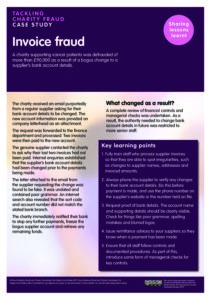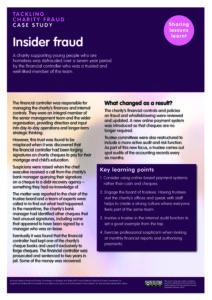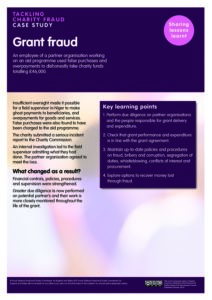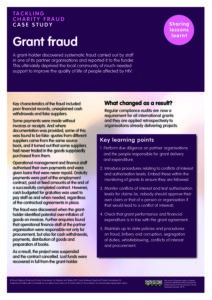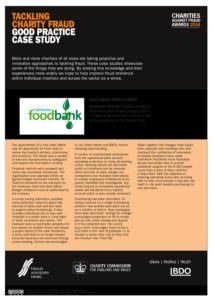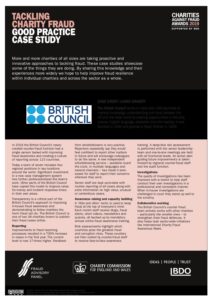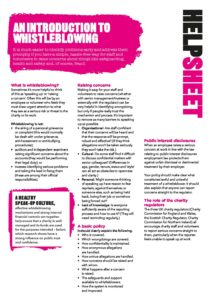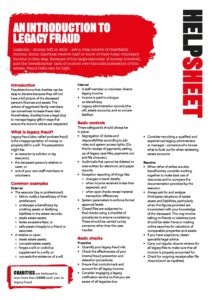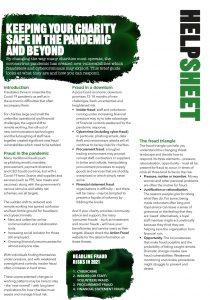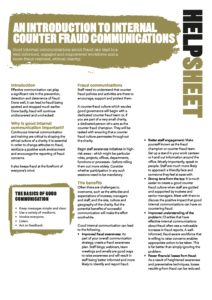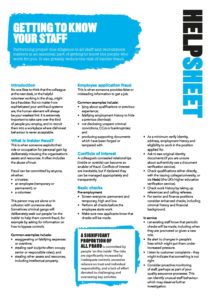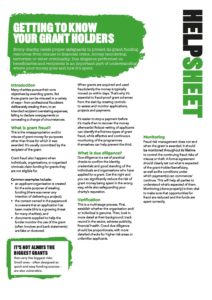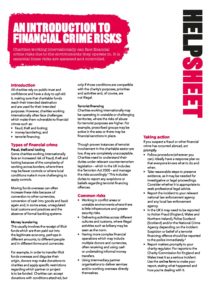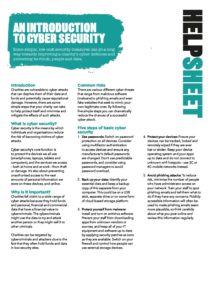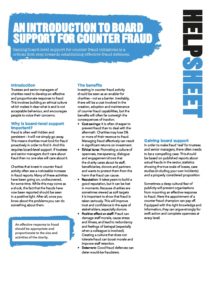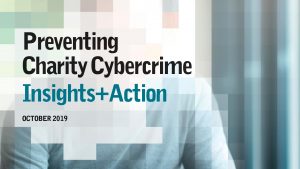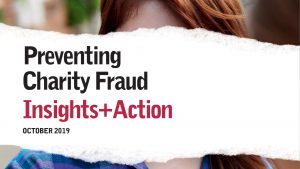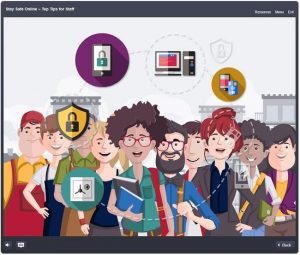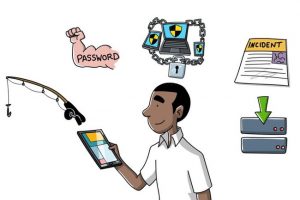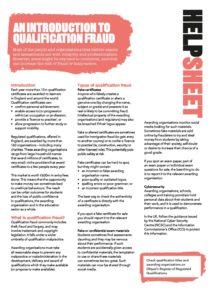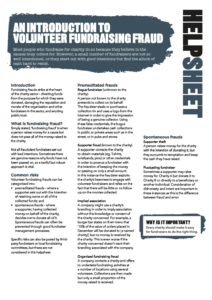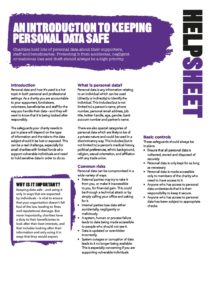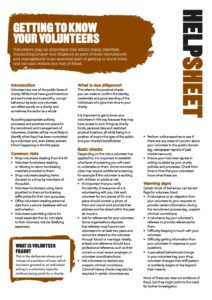Search Documents:
Invoice fraud
A charity supporting cancer patients was defrauded of more than £90,000 because of a bogus change to a supplier’s bank account details. Learn more about what happened and what changed as a result.
Insider fraud
A charity supporting young people who are homeless was defrauded over a seven-year period by the financial controller who was a trusted and well-liked member of the team. Learn more about what happened and what changed as a result.
Grant fraud (example 2)
An employee of a partner organisation working on an aid programme used false purchases and overpayments to dishonestly take charity funds totalling £46,000. Learn more about what happened and what changed as a result.
Grant fraud (example 1)
A grant-holder discovered systematic fraud carried out by staff in one of its partner organisations and reported it to the funder. This ultimately deprived the local community of much-needed support to improve the quality of life of people affected by HIV. Learn more about what happened and what was changed as a result.
Improving financial controls (Colchester Food Bank)
A review of internal financial controls by Colchester Food Bank resulted in several low-cost improvements to safeguard and expand the food bank’s funding. Learn more about the benefits of their approach in this case study.
Creating a counter-fraud function (British Council)
In 2016 the British Council established a counter-fraud function to improve fraud awareness and create a culture of reporting across 115 countries. Learn more about the benefits of their approach in this case study.
Whistleblowing
It is much easier to identify problems early and address them promptly if you have a simple, hassle-free way for staff and volunteers to raise concerns about fraud.
Moving money safely
Regardless of size, nature and complexity, every charity needs to move money safely if it’s to deliver its charitable objectives.
Keeping your charity safe in the pandemic and beyond
The coronavirus pandemic has created new vulnerabilities which fraudsters and cybercriminals may exploit.
Internal counter fraud communications
Good internal communications about fraud can lead to a well-informed, engaged and empowered workforce and a more fraud-resilient, ethical charity.
Getting to know your staff
Performing proper due diligence in all staff and recruitment matters is an essential part of getting to know the people who work for you.
Getting to know your grant holders
Every charity needs proper safeguards to protect its grant funding resources from misuse in financial crime, money laundering, terrorism or other criminality.
Financial crime risks
Charities working internationally can face financial crime risks due to the environments they operate in. It is essential these risks are assessed and controlled.
Cyber security
Some simple, low-cost security measures can go a long way towards improving a charity’s cyber defences and protecting its funds, people and data.
Board support for counter fraud
Gaining board-level support for counter fraud initiatives is a critical first step towards establishing effective fraud defences.
Preventing charity cybercrime
This report highlights the main findings from the largest survey undertaken into cybercrime in the UK charity sector, commissioned by the Charity Commission for England and Wales and Fraud Advisory Panel.
Preventing charity fraud
This report highlights the main findings from the largest survey undertaken into fraud committed against UK charities, commissioned by the Charity Commission for England and Wales and Fraud Advisory Panel.
Staying safe online: top tips for staff
Ask your staff and volunteers to complete this 30 minute e-learning course on the basics of good cyber security. Created by the UK’s National Cyber Security Centre, it’s free and easy-to-use.
Cyber security for charities and small organisations
Learn about the steps you can take to keep your charity safe online with this free training course from the UK’s National Cyber Security Centre. It covers five key cybersecurity topics over five days.
Qualification fraud
Some people and organisations that deliver exams and assessments might be exposed to incentives, and that can increase the risk of fraud or malpractice.
Volunteer fundraising fraud
A small number of fundraisers are not well intentioned, or they start out with good intentions but find the allure of cash hard to resist.
Keeping personal data safe
Protecting personal data from accidental, negligent or malicious loss and theft should always be a high priority.
Getting to know your volunteers
Conducting proper due diligence as part of volunteer recruitment and management is an essential part of getting to know them.
